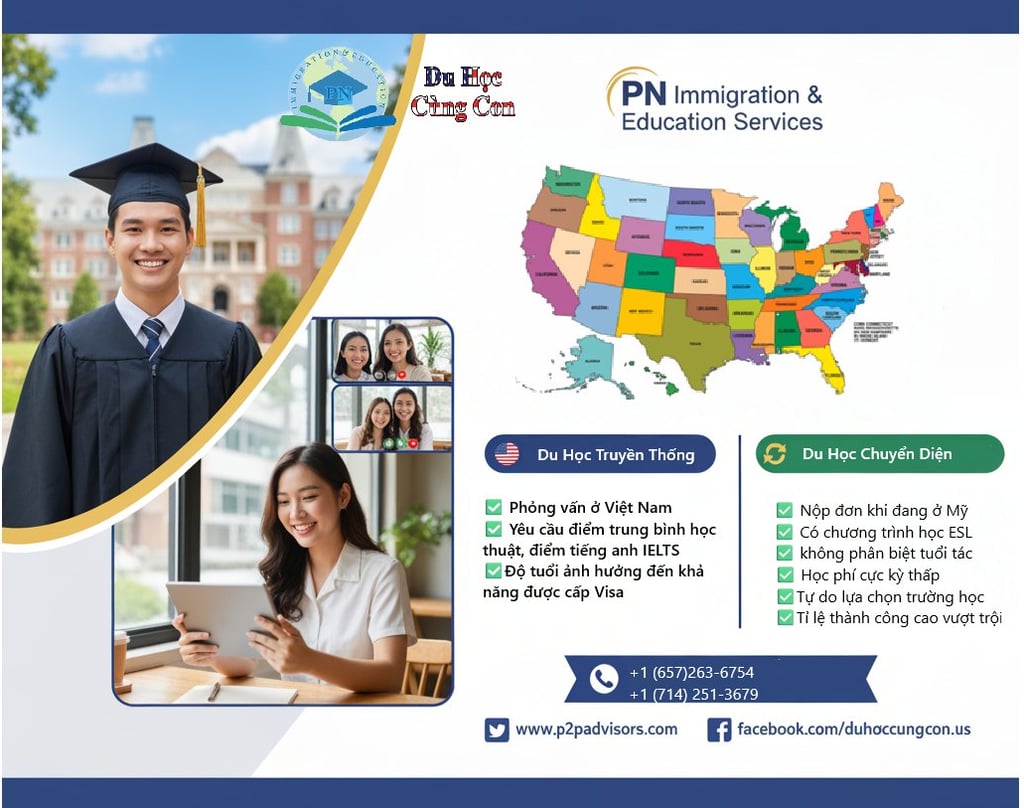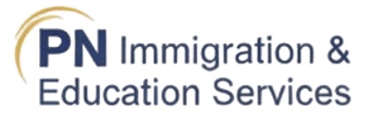📞+1 ( 657) 263-6754
📧 info@p2padvisors.com
CHANGE OF STATUS IN THE U.S. OR TRADITIONAL APPLICATION FROM VIETNAM
CHANGE OF STATUS IN THE U.S.
11/18/20252 min read


🇺🇸 STUDYING IN THE U.S.: CHANGE OF STATUS IN THE U.S. OR TRADITIONAL APPLICATION FROM VIETNAM? 🤔
Which option is the best for you?
Many parents and students often wonder between two common pathways:
• Studying abroad through Change of Status (COS) while already in the U.S. (from visas such as L1/J1/B1/B2…)
• Traditional U.S. student visa application (F1) through an interview in Vietnam.
Which choice fits you best? Let’s analyze in detail with PN Immigration & Education Services!
🔸1. STUDYING IN THE U.S. VIA CHANGE OF STATUS (COS)
This option is for those who are already in the U.S. on visas such as working visa L1, tourist visa (B1/B2), exchange visa (J1), or other non-immigrant visas, and want to switch to a student visa (F1).
✅ Advantages:
👉 No visa interview required at the U.S. Consulate — reducing pressure and anxiety.
👉 Real-life experience before committing: You can get familiar with the lifestyle, culture, school environment, and community in the U.S. before officially becoming an international student.
👉 Flexible school choice: You have time to explore and choose the school you like while already in the U.S.
👉 Wide range of programs, from ESL English to academic courses.
👉 Freedom to choose schools anywhere in the U.S.
👉 No English requirement (depending on the school/program).
👉 Family COS available — dependents can receive F2 visas.
⚠️ Disadvantages & Notes:
👉 Cannot leave the U.S.: You must remain in the U.S. while your COS application is being processed.
👉 Risk of visa renewal denial when visiting home: Your study program matters. If you only study ESL, getting a new visa to return to the U.S. may be difficult.
👉 Risk of denial: If your I-539 COS application is denied, you must return to Vietnam.
👉 Important: Use your original entry visa properly and legally when entering the U.S.
🔸2. TRADITIONAL STUDENT VISA FROM VIETNAM (F1 visa on your passport)
This is the familiar pathway in which you submit your application and interview directly at the U.S. Embassy/Consulate in Vietnam.
✅ Advantages:
👉 Fast processing: Within 1–3 months, you can complete the visa process and prepare to fly.
👉 High flexibility: You receive the F1 visa in your passport and can travel in and out of the U.S. legally.
👉 Easier visa renewal when returning home — as long as your studies in the U.S. are good and you follow visa rules.
⚠️ Disadvantages & Notes:
👉 Interview pressure: The in-person interview with the consular officer is a crucial and potentially stressful step.
👉 Requires strong English skills (IELTS or equivalent).
👉 Academic ability is essential.
👉 Financial and academic documents must be strong.
👉 Difficult to get visas for the entire family.
In summary:
Depending on each student’s situation, conditions, circumstances, and goals, you should carefully consider which pathway is the most suitable for you.
🌐2228 Seed Way, Buford, GA, The United States 30518
🌐Sophia PN office -18th Floor Indochina Park Tower, Office Area, 04 Nguyen Dinh Chieu Str., Ho Chi Minh City, Vietnam
Contact US:
Zalo/Viber/ Whatsapp 📞+1 (657) 263-6754
Zalo/Viber/ Whatsapp 📞+1 (714) 251-3679
Zalo/Viber/ Whatsapp 📞+84 93 855-3499
📧 us.hotroduhoc@gmail.com
📧info@p2padvisors.com


